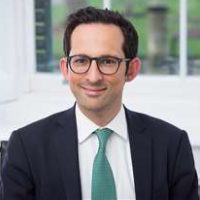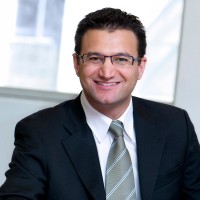The High Level Panel of Legal Experts on Media Freedom submitted an amicus curiae petition to the Inter-American Court of Human Rights in the Case of Emilio Palacio Urrutia and Others v. The Republic of Ecuador. On Monday, June 15, 2021, the Inter-American Court of Human Rights began the public hearing on this case concerning the lawfulness of criminal defamation statutes as applied to El Universo, one of Ecuador’s most well-established and widely circulated newspapers, its columnist, and its three directors.
In its amicus curiae, the High Level Panel of Legal Experts was represented by its members Dario Milo and Can Yeginsu. A copy of the amicus curiae brief is available here. In this regard, the Chair of the High Level Panel and Former President of the UK Supreme Court, the Rt Hon Lord Neuberger of Abbotsbury, stated: ‘The amicus curiae brief submitted by the High Level Panel to the Inter-American Court in the El Universo case makes a strong and impressively well-argued case against the criminalisation of defamation as it stands both in Ecuador and across the Organisation of American States. We hope the analysis and submissions provided by the Panel will assist the Court in its deliberations in this important case.’
Similarly, the Deputy Chair of the High Level Panel and Barrister, Amal Clooney, commented that: ‘This case involved public interest reporting on alleged criminal conduct by the former President of Ecuador and yet resulted in the imposition of a staggering 3- year prison term and 30 million US dollar penalty against the journalists involved. The amicus brief submitted by the Panel demonstrates that criminal penalties for defamation are not appropriate under international law and I hope that the Inter-American Court will reach the same conclusion when considering this case.’
Professor Can Yeginsu, barrister and Member of High Level Panel remarked: ‘For media freedom, there is an important distinction to be drawn between civil and criminal defamation. The former, when the sanction is strictly proportionate to the actual harm caused, can in principle serve as a lawful mechanism to ensure untruths do not go unchecked and unpunished. The latter, by contrast, is the most severe possible interference with freedom of expression. In cases that engage journalistic activity, there really can be no place for the criminal law. The very existence of such laws chills political speech and undermines the press’s vital public watchdog role in a democracy.’
Professor Dario Milo, member of High Level Panel added: ‘The conviction and sentence of imprisonment of Emilio Palacio Urrutia, Carlos Pérez, César Pérez and Nicolás Pérez for supposed defamation in the form of an opinion piece strikes at the jugular vein of the right to freedom of expression and the media. The Inter-American Court now has an opportunity to rule not only in this case but to develop its important jurisprudence in the area of criminal defamation and media freedom. We are hopeful that our submissions will assist the Court in this critical case – its decision will have profound implications for the decriminalisation of defamation around the world.
The High Level Panel of Legal Experts on Media Freedom is an independent body convened by Lord Neuberger, its Chair, in July 2019, at the request of the United Kingdom and Canadian governments, to advise the 47-strong Media Freedom Coalition of states on ways to prevent and reverse abuses of media freedom, as well as ensuring existing international obligations relating to the freedom of expression are upheld. The International Bar Association’s Human Rights Institute acts as the Secretariat to the High Level Panel
This update was elaborated from posts originally published by the IBAHRI here.


